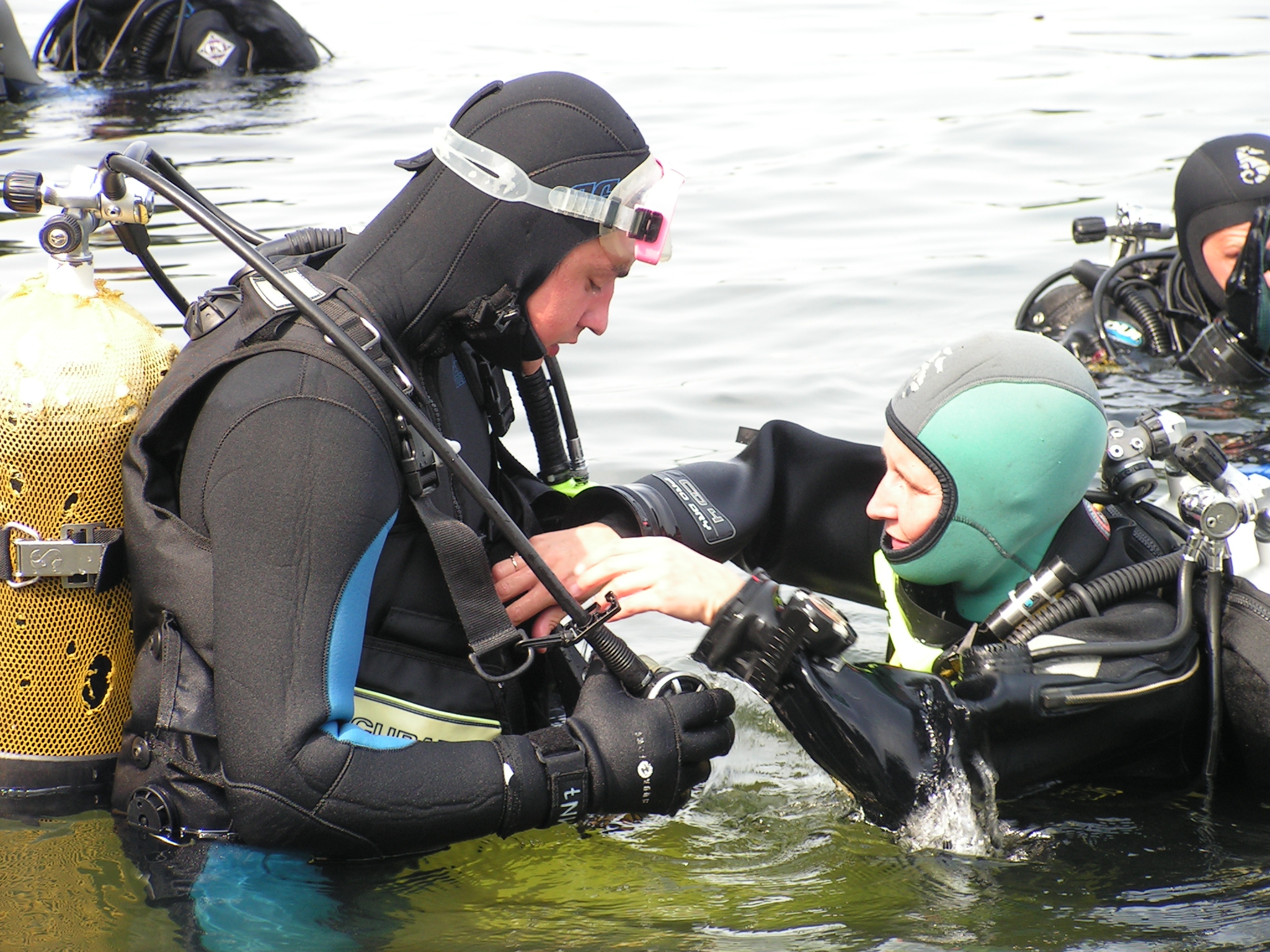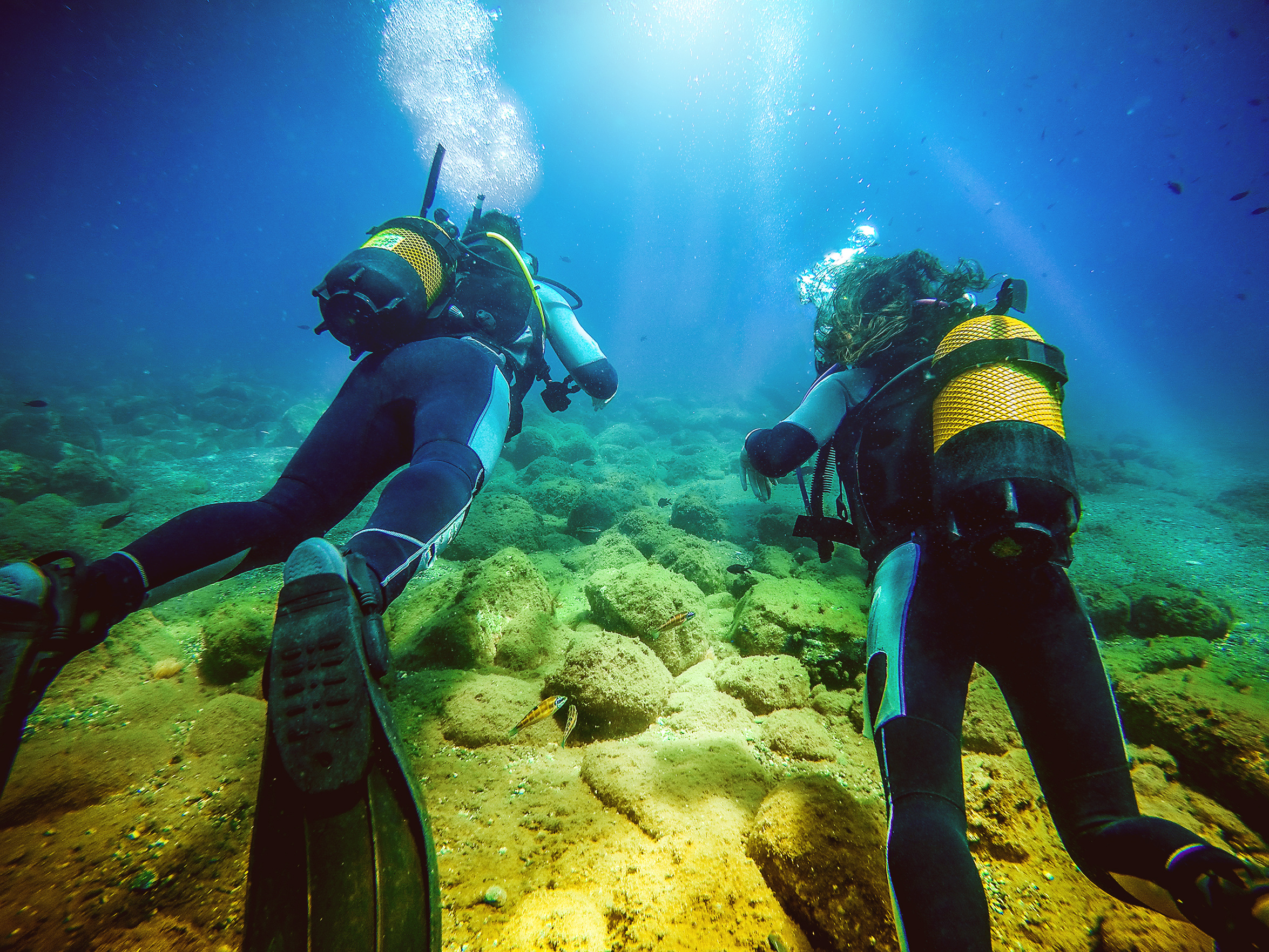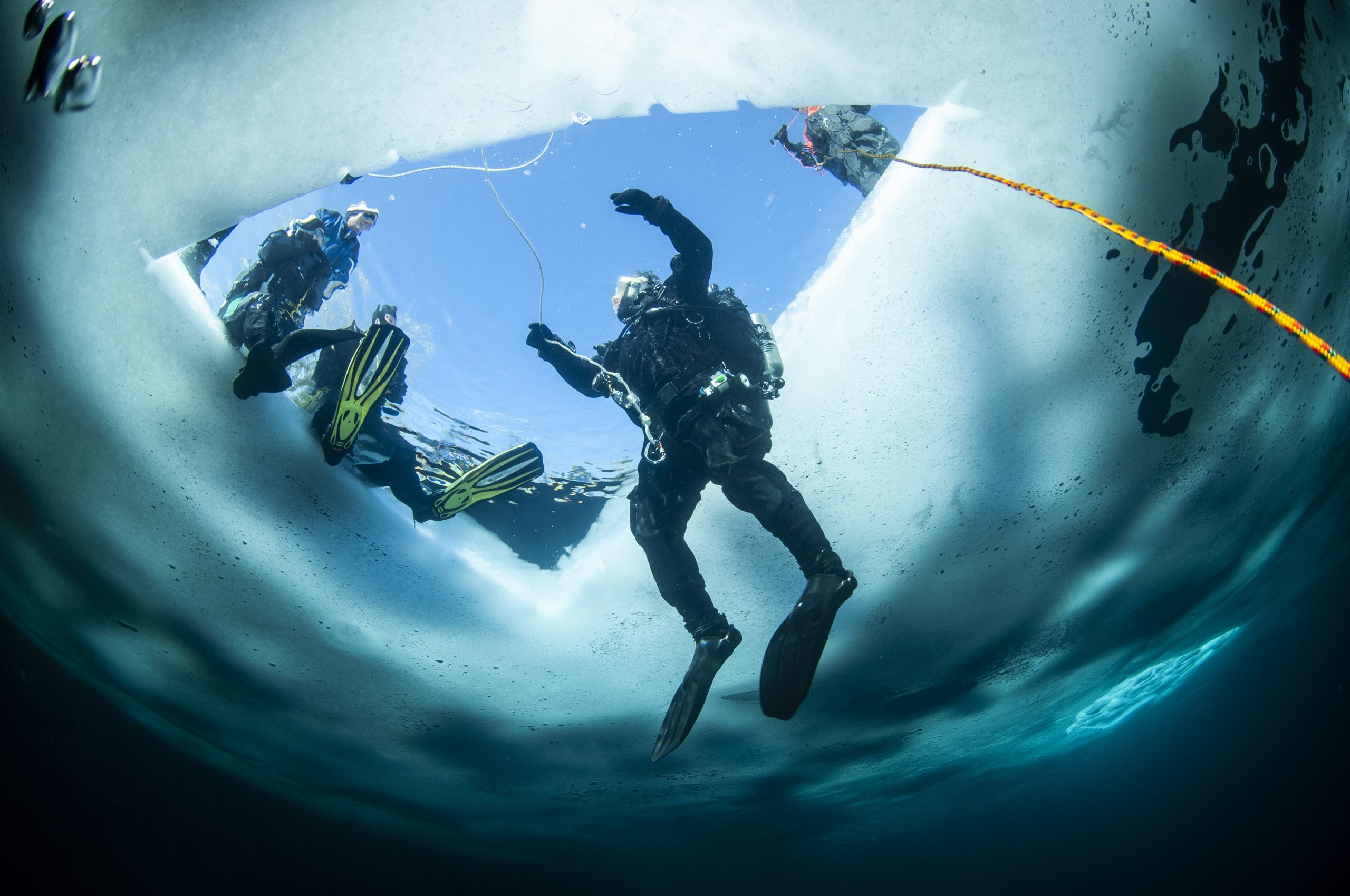“Japanese tricks for self-defence and attack and guns and knives are a sort of safety belt for someone working at a dizzy height above the ground. We simply don’t provide you with such a belt! The fact is that it is only those steel-erectors who make use of a safety belt who fall from high places. One day they forget to do up their belt and down they go. But those who never wear a safety belt never fall. Because they are always conscious of the fact that they are not strapped on. So they are always very careful. The safety belt reduces that constant caution.”
/V. Suworow, „Aquarium”, Hamish Hamilton 1985, p. 171/
After the course
Diving with partner rather than solo certainly is preferred way of diving. It is described as a safe form of practicing this type of sport. But is this certainly the case?
Very often, people who have little experience in diving or just finished a basic scuba course prefer to dive together with their instructor or another trusted person with much higher skills. Such behavior is understandable from the point of view of their own psychological comfort and sense of security. With someone more experienced by our side, we feel safe, and confident that we will be helped, if a dangerous situation arises. However, does such thinking is correct? In the stage where we put our first steps in scuba diving, undoubtedly yes. Mental comfort, especially in such a hostile environment as the underwater world, is extremely important in terms of the process of learning and acquiring new diving skills. An inexperienced diver when she/he is under stress, thinks only of possible danger and will make much worse progress than a diver who is devoid of such thoughts. This is also confirmed by the fact that most people who dive prefer the “friendly”, warm and clear waters of the Mediterranean Sea or Thailand rather than cold and often dark European Lakes.
A dangerous habit
However, continuing such practice for too long carries certain danger to us. Humans very easily get used to comfort and security, making it difficult for them to leave this zone later. Imagine having to move again to unheated caves or shacks, and getting food by hunting or gathering whatever you can eat from the ground. Few people in such conditions would feel comfortable and maintain the level of spirit they currently possess. The same is true of scuba diving. The constant supervision of an instructor after the course or more experienced group mates is something that is very easy to get used to. It’s a kind of “release from thinking,” pure relaxation and comfort even on more difficult dives. However, in the long term, once the diver has gained some experience, this habit becomes undesirable and very dangerous. It is a kind of illusion of safety. A phenomena that dangerously inhibits or could even reverse, the development of diving skills.
The illusion of safety
Constant counting on a partner deprives us of two important qualities necessary for safe scuba diving: rescue skills and the will to fight. Entering the water with the idea that “in case of danger, I have a partner” makes us not to check our own equipment and not to practice self-rescue procedures. We simply become a passive participant in the events occurring underwater and – if everything goes well – we come out alive. The problem arises when something starts to go wrong. According to the principle of escalation, mistakes generate more mistakes. Finally, we reach a place where no one can help us anymore. Unpracticed procedures and bad reflexes take revenge on us, and even the presence of a partner can’t change anything in this situation. Another factor mentioned at the beginning of this paragraph is the will to fight. When living in a world of comfort (whether above or below water), we don’t have to fight for ourselves. We try to avoid danger and our first subconscious reflex when we encounter one is to run away or give up. Underwater, this reflex has another name – panic. Sudden start of emergency situations at a time when we have counted on our partners or instructors throughout our underwater career makes our psyche – and therefore us – unable to pick up the gauntlet and start fighting. We choose to escape and the chosen route, regardless of our skills, very often is the same – up to the surface. A peculiar paradox: while counting on a partner, we run away from a partner.
The will to fight
Having the will to fight is very important in extreme sports. It is the part of the psyche that gives us precious seconds to master the situation and helps overcome the primal, instinctive reflexes developed in us by nature. In addition, emergency situations most often happen suddenly (loss of visibility, scuba regulator malfunction, flooded diving mask). A “fight, don’t flee” attitude allows us to go into action despite unfavorable conditions or if action is impossible to keep cool until help arrives. However, these two factors – rescue skills and the will to fight – are impossible to develop if all the time we dive with the attitude of “as if what, I have a partner who is experienced – he will help me”.
My buddy
The last mistake in thinking presented above is its main pillar – the partner. She/He may be the most experienced diver in the world, with the best skills and having all the necessary equipment with her/him. All this will be useless if this person can’t reach us. The reasons for such situation can be various: poor visibility, loss of contact by buoyancy or currents, too long distance between us, entanglement in rope or net and the aforementioned panic. All of these can make it simply impossible for a partner to provide us with assistance. What happens then, when we are unable to help ourselves – is already known.
What should I do?

So how should think a diver who wants to fully develop her/his skills and gain the right mental attitude to practice diving? First of all, a diver should be confident that she/he can plan and execute a given dive and applied self-rescue procedures in case of an emergency. In addition, this confidence should be built empirically from the results of training exercises with a wide degree of difficulty performed underwater as well as above water on shore. A conscious diver never claims to know something flawlessly. There is always some element to improve or exercise it in more difficult conditions. Shooting a buoy, changing a mask, s-drill, v-drill could be the same elements of any dive as gathering equipment or putting on fins. They simply always occur in the diving of aware diver. Even on a subconscious level, they are already in her/his dive plan. Of course, such a person also knows her/his own equipment, takes care of it and practices with it. However, the most important feature of the mentality of a conscious and confident diver is the following thought: “I am the one who takes care of my partner and can keep him safe. I check if my buddy is with me, not because I am afraid to be left alone, but to make sure that everything is <OK> with him too”. Developing self-reliance and initiative is an extremely important trait in gaining diving experience at every stage of training. Oh the other hand, fear for oneself or mental blocks can effectively stop our proper development of a diving career or even alienate us from practicing this wonderful sport.
SOLO diving
Of course, this probably raises a fundamental question: Since a good diver is someone who is independent, perhaps the best way to dive is SOLO diving? This type of diving activity makes the diver always aware that she/he can count only on herself/himself. In addition, it forces her/him to practice self-rescue procedures, proper equipment configuration and reduces to zero the risk of accident to her/his partner (because she/he simply doesn’t have one). Well, in the author’s opinion, the answer to this question is “no”.
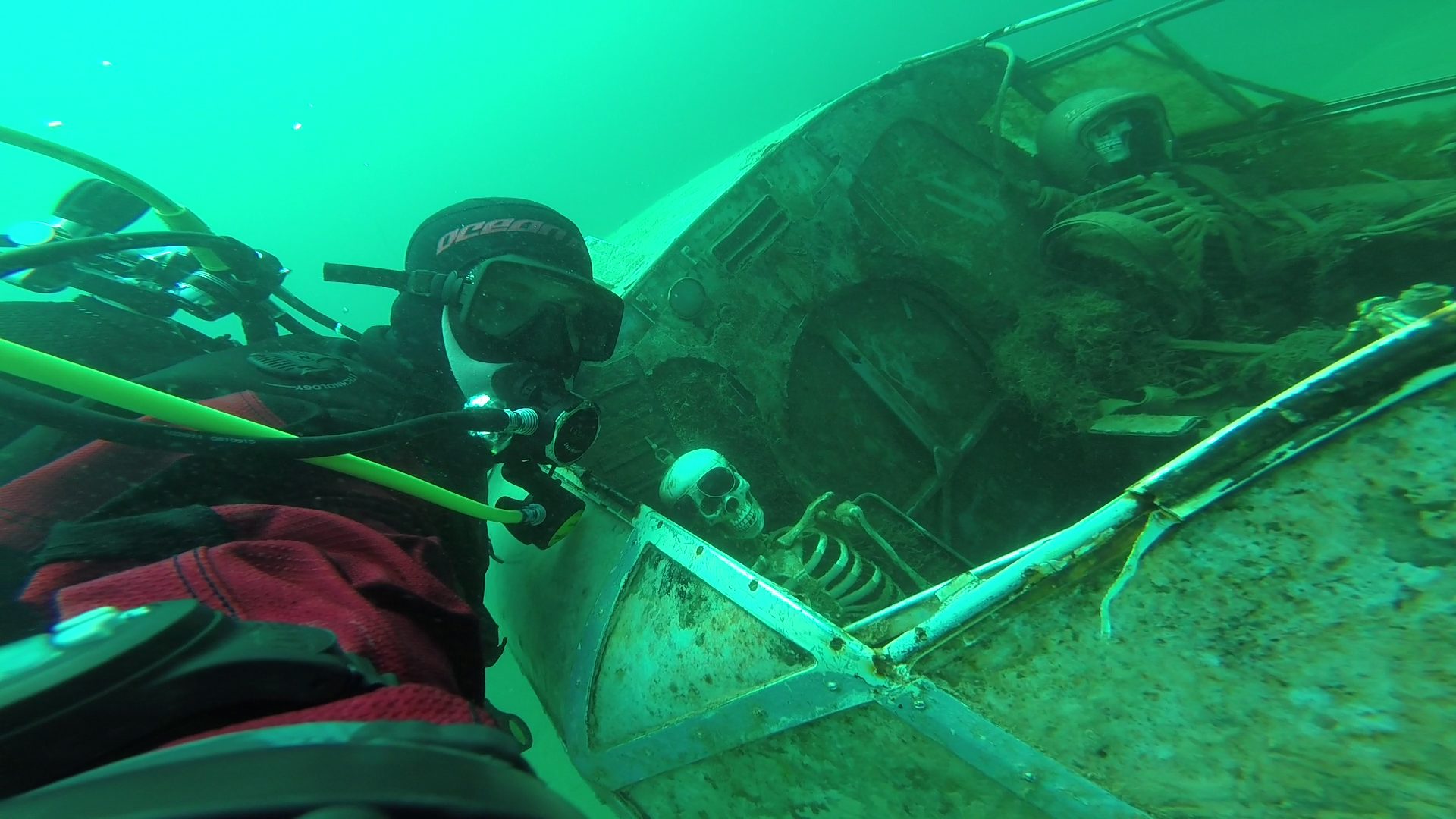
The reason for this answer is not only safety reasons but also diving philosophy. Let’s start with the second one. SOLO diving is like eating a delicious cake by yourself. After the consumption, we could tell everyone how great it tasted and looked and show others pictures of it. Delight in the composition of flavors, visual qualities and craftsmanship of preparation, but these are just stories. No one will fully understand or feel what experience we really had. Eating this cake in two or in a larger group makes these people experience the same sensations, be in the same place and feel the same, share this moment. This brings people together, allows them to better know each other and share with joy the same passion to diving. And this is the main goal and essence of this wonderful sport. To share the same underwater joys and excitement with someone together in the safest possible way.
However, it is important to remember that diving partner is a huge added value to the safety of any dive. After all, there are situations in which we would not be able to help ourselves. Gas narcosis, oxygen toxicity attack, heart attack or fainting are problems that can happen to any of us. In such circumstances, the help of a partner is even essential to get out of such a situation unscathed, and it is our “to be or not to be”.
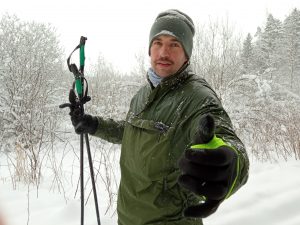
About the author:
Daniel Popławski is an experienced IDF Master Diver Instructor from Masuria region. He is the author of many training presentations used by IDF instructors. With MSc in chemistry, Daniel applies his knowledge to the more scientific aspects of diving, such as gas blending. Privately, he enjoy a healthy lifestyle and all physical activity related to water (not necessarily in a liquid state). With his responsible and enthusiastic attitude he infects new diving students.





